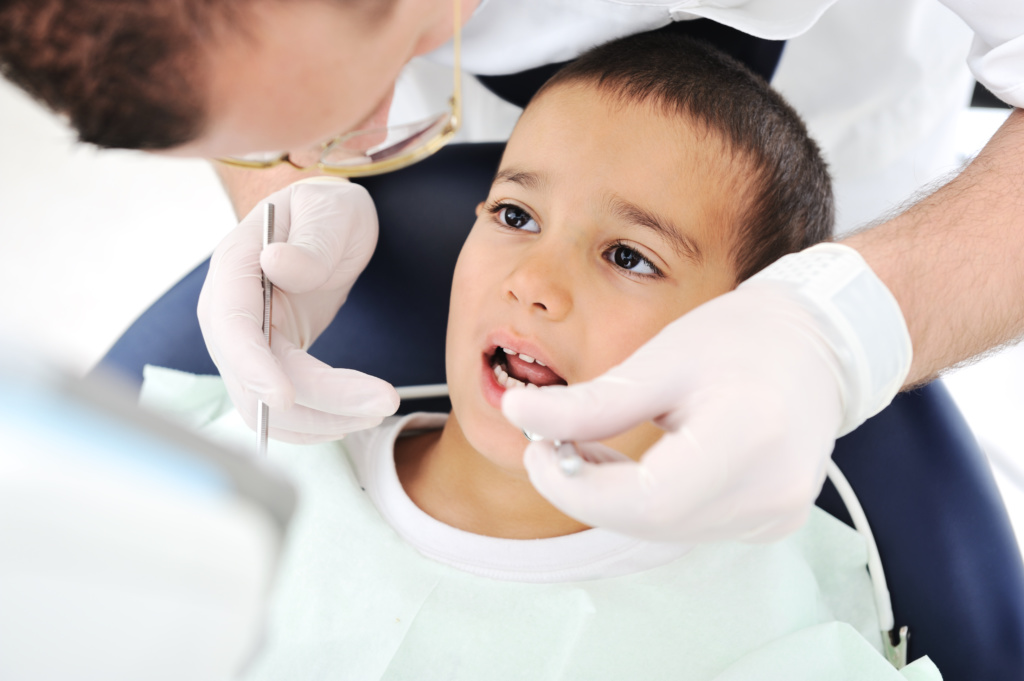
Your child’s first loose tooth is a huge event. For kids, it’s an exciting time that begins their journey into adulthood as their grown-up teeth begin to come in. For parents, it’s often the time to introduce the legend of the Tooth Fairy.
Of course, loose teeth can also have their fair share of complications. Kids might be worried about brushing their teeth with a loose baby tooth, and parents might be concerned when a baby tooth just doesn’t seem to want to come out. To help ease some of the worries, here are some dental care tips parents need to know about their child’s loose baby teeth.
Your child might be a little uneasy about brushing and flossing their teeth when they have a loose tooth. But it’s important to make sure your child is brushing twice a day as recommended by the American Dental Association. Brushing helps to keep plaque off your child’s teeth where it can increase their risk of cavities, and 40% of children have dental cavities by the time they reach kindergarten. If your child is nervous about losing their baby tooth down the drain, close or cover the sink drain while they’re brushing. Supervise your child while they brush to make sure they’re brushing thoroughly and for at least two minutes.
Some kids and parents aren’t as nervous about their loose baby teeth but instead try to force the baby tooth out using an array of methods including the old string-to-a-doorknob trick. However, forcing a baby tooth out isn’t actually a good idea, even if the tooth seems to be taking a while to fall out completely. Forcing a baby tooth out can tug at the tooth’s sensitive roots and cause unnecessary pain to your child. When a baby tooth comes out, there should hardly be any pain (if at all) and little blood.
Speaking of blood, it’s understandable for your child to be nervous if they see blood when their baby tooth comes out. However, a little blood is completely normal. Your child ought to rinse their mouth with clean water after the tooth has fallen out naturally. If the baby tooth has fallen out prematurely, it might bleed a little more than usual. You can apply a little gauze to the area to help stop the bleeding after your child rinses their mouth with clean water.
Sometimes the empty socket of the lost baby tooth can feel sore even when the tooth has fallen out naturally. This is normal and can be easily treated with a cold compress to help numb the area. Wrap an ice pack in a cloth and have your child hold the compress to the area for 15 minutes. Depending on their age, you can also ease some of your child’s discomfort by using the correct dose of Children’s Tylenol.
Every child is different and some baby teeth may take longer to fall out naturally than others. However, if you’re concerned about how long it’s taking your child’s loose baby tooth to fall out or if you notice swelling around the area where the tooth is loose, it may be a good idea to reach out to your child’s dentist. The gums around the tooth may have become swollen and inflamed due to excess plaque build-up. Other potential reasons to reach out to your child’s dentist about your child’s loose tooth include:
Even if your child’s baby tooth is perfectly fine, remember to take your child to their pediatric dentist once every six months for a regular cleaning and dental check-up to maintain their dental health as they grow.
Looking for family dentists in your area? Smilez Pediatric Dental Group has the licensed dentists you’re looking for. For more information about general dentistry services and preventative care or to schedule an appointment with our pediatric dentists, contact us today.